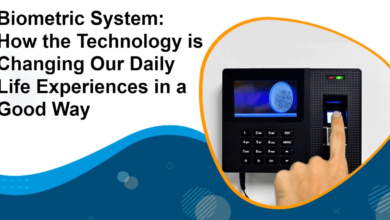How Biotech Is Changing Healthcare Innovations

The evolution of biotechnology is fundamentally transforming healthcare through innovative approaches such as gene editing, personalized medicine, and regenerative therapies. Techniques like CRISPR-Cas9 are setting new standards for precision in genetic modifications, while AI is streamlining drug development processes, potentially altering the landscape of clinical trials. Additionally, advancements in regenerative therapies promise to enhance healing and recovery in unprecedented ways. As these developments gain traction, one must consider the broader implications they hold for patient care and the ethical considerations that accompany such rapid advancements. What might the future of healthcare look like in this new paradigm?
Gene Editing Breakthroughs
Recent advancements in gene editing technologies, particularly CRISPR-Cas9, have revolutionized the landscape of genetic research and therapeutic applications, enabling precise modifications to DNA with unprecedented efficiency and accuracy.
As CRISPR technology advances, ethical considerations surrounding its use in genomic research and clinical applications become paramount.
The potential for transformative breakthroughs must be balanced with responsible governance to ensure equitable access and minimize unintended consequences in society.
Personalized Medicine Advances
The emergence of personalized medicine represents a significant paradigm shift in healthcare, leveraging genetic, environmental, and lifestyle factors to tailor treatments to individual patients, thereby enhancing therapeutic efficacy and minimizing adverse effects.
Through genomic profiling, healthcare providers can identify specific genetic markers, enabling the development of targeted therapies that address unique patient profiles.
Ultimately, this approach fosters a more effective and liberated method of health management.
Innovative Drug Development
Innovative drug development is revolutionizing the pharmaceutical landscape by integrating cutting-edge technologies such as artificial intelligence and machine learning to streamline the discovery and optimization of novel therapeutic compounds.
This paradigm shift accelerates the transition from lab to clinic, enhancing the efficiency of clinical trials and increasing the likelihood of successful outcomes.
The result is a more agile and responsive drug development process.
Regenerative Therapies Impact
Advancements in innovative drug development have paved the way for regenerative therapies, which harness the body’s intrinsic healing mechanisms to repair or replace damaged tissues and organs, thereby transforming treatment paradigms across a range of medical conditions.
Key areas of impact include:
- Stem cell therapies promoting cellular regeneration.
- Tissue engineering facilitating organ replacement.
- Enhanced patient outcomes through personalized medicine.
Also read: How Biometric Technology Is Changing Security
Conclusion
In the realm of healthcare, biotechnology emerges as a sculptor, meticulously chiseling away at the rough marble of traditional medicine to reveal a masterpiece of innovative solutions.
Each breakthrough in gene editing, personalized medicine, drug development, and regenerative therapies serves as a brushstroke, enhancing the canvas of patient care.
As this artistry evolves, it becomes evident that the future of healthcare lies in the delicate balance between precision and compassion, ultimately reshaping the narrative of human healing.




